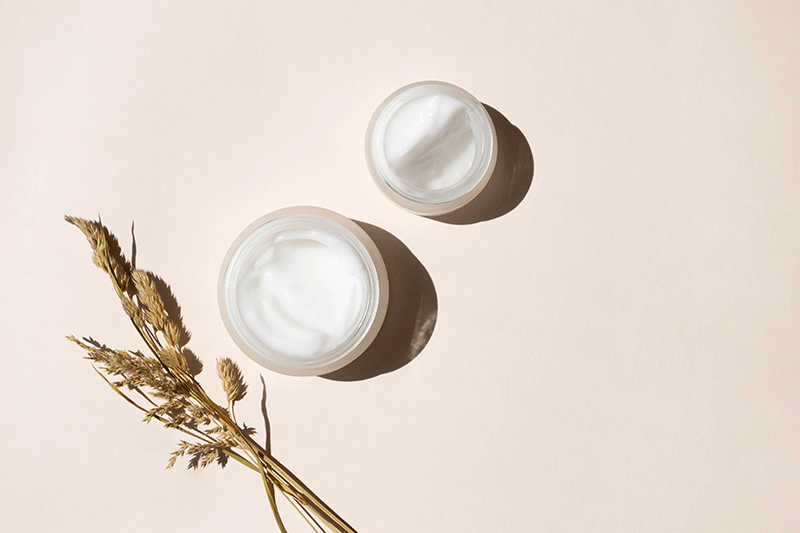5 Ways to Avoid Falling for Greenwashing
Have you ever made a purchase based solely on the appearance of the product? Are simple packaging or marketing words such as 'environmentally friendly' enough to make you choose one product over another? It is possible that you are falling prey to greenwashing. Everywhere and everywhere we go, this is an ever-present issue. Just as our constant exposure to advertising can subconsciously impact our lives, so can the manipulative nature of these marketing tricks.
This may seem intimidating, but fear not! There are measures you can take to avoid it. All it takes is a greater awareness and understanding of how to be a more conscious consumer. By properly educating yourself about what greenwashing is, and how it presents itself, you can make more informed decisions regarding your purchasing habits.
Consumers who are aware of these tactics and avoid falling for them are more likely to affect change. Every time you spend money, you are voting for the future you want. Always keep this in mind.
What is Greenwashing?
In marketing terms, "greenwashing" is when companies use certain tactics to alter the public's perception of their environmental efforts and ethical (or unethical) intentions. By presenting themselves in this way, they aim to reach a broader demographic by appearing to be ethical, but in fact they aren't. Brands will manipulate their appearance, withhold information, or make irrelevant claims to entice potential customers to buy their products. When presented as a healthier or more sustainable option, a customer is more likely to choose them than the competition.
How can I avoid falling for Greenwashing?
Watch out for fluff words
Be wary of trendy aesthetic and minimalist packaging
Shop with intention and ask lots of questions
Look out for irrelevant claims
Consider the company’s overall transparency
To help you better understand how to not fall for greenwashing, I am going to get more into each of the 6 things mentioned above.
Watch for fluff words such as natural, biodegradable, recyclable
What I mean by this, is the words used to make you think something is natural, green, or sustainable when it really isn’t. There is a wide variety of verbiage that can be used without technically making false claims. Companies will ride the line between fact and fiction by using words such as:
Biodegradable- while the products can be decomposed by microorganisms, it doesn't mean that it will end up in an environment that allows it to biodegrade.
Environmentally Friendly — while they might have one element that helps them fall into this category, it is a vague claim
Recyclable — recyclable waste is still waste, and plastic is still plastic consider checking out this post to learn more
All Natural — just because it’s ‘natural’ doesn’t make it good for you
Plastic-Free — this doesn’t mean it’s good for the environment or your health
Generally, fluff words are very vague and don’t speak to the specific benefits of a product. The true intention of using these is to help the consumer get a quick ‘feel-good moment when purchasing something that is supposedly better than the alternatives. If you scan the aisle of any big box retailer, you are sure to find a ton of these spread across products of all categories.
Be wary of trendy aesthetic and MINIMALIST packaging
As a movement, minimalism was founded upon the idea that by owning less 'stuff' and having only what one really needs, one can live a fulfilling life. While it seems counterintuitive, lifestyle is a very effective selling point for many brands to get more sales for their products. Instead of advocating less consumption, simplicity has become trendy. The term minimalism today typically refers to simplistic designs and neutral color schemes. The 'lesser' look often tries to imply that it is somehow better, even if it's not necessarily environmentally friendly or ethical. There no guarantee that something is good for the environment or has clean ingredients just because it appears that way.
Look out for irrelevant claims
An irrelevant claim is a marketer’s way of trying to avoid bringing attention to the truth about the product’s material or ingredients. They will put fluff words or bring attention to good qualities to distract from the bad ones. It is important to consider the overall product to avoid falling for this. Just because something might be good in one way, does NOT make it great (or even ok) overall.
For example, a lot of plastic products are listed as ‘BPA FREE’ — while this is an important feature for plastics to have to not leach chemicals into your food or drink; the fact of the matter is the product is still made of plastic. The claim is trying to make you feel good about your purchasing choice while distracting from the fact that you are still purchasing something that will end up in the ocean or a landfill for the rest of eternity. If you go out and buy a case of single-use plastic beverage bottles once a month, all of that plastic is going to waste whether or not it is BPA FREE.
Consider the company’s overall transparency
Can you easily locate product ingredients on the packaging or are they listed super tiny? Does their website have research-backed claims and speak to the history of the brand or is it just full of marketing fluff and pretty images? Transparency is really important, and something more businesses should be doing. Not only does it improve your connection with the businesses you are supporting, but it gives you clear insight into the intentions of the company.
I recently reviewed Everist Haircare products which is a company with a great example of transparency. While they do highlight the many benefits of their zero waste product, they also are very transparent about their company history, their manufacturing process, employee wages, the environmental impact of their products, the effort they are making to reduce their impact, and the environmental causes they are associated with.
Basically, if a company isn’t proud to be advertising their process from start to finish, or even worse are going out of their way to distract from it — don’t walk, RUN in the other direction!
Shop with intention and ask lots of questions
The best way to avoid this unethical marketing practice is to become a more conscious consumer overall. In order to achieve this, you will need to change your impulsive buying habits to more thoughtful ones. In the long run, this change will help you save money as well as the environment because you won’t be stuck with things you don’t end up using.
Instead of relying on information provided on a product or it’s website, consider doing some research on your own. Never forget that despite all the wonderful claims a brand may make, their intention is to convince you they are worth spending your hard earned money on. In order to truly know you aren’t being bamboozled, consider using the resources below and always asking LOTS of questions!
Check out Good on You’s website and download the app for ethical brand ratings to see how your favourites compare
Use the Sustainable Palm Oil Shopping app to check everyday products for the detrimental use of palm oil
Keep up on new eco-trends to be aware of new greenwashing opportunities and find new opportunities to shop sustainably with OurGoodBrands website
Hey, Claudia here
I am a senior graphic designer, a dog mom, an advocate for a zero-waste lifestyle, climate change, and sustainability. My articles are based on personal experience and well researched to give you the best source of information for all things zero-waste.


